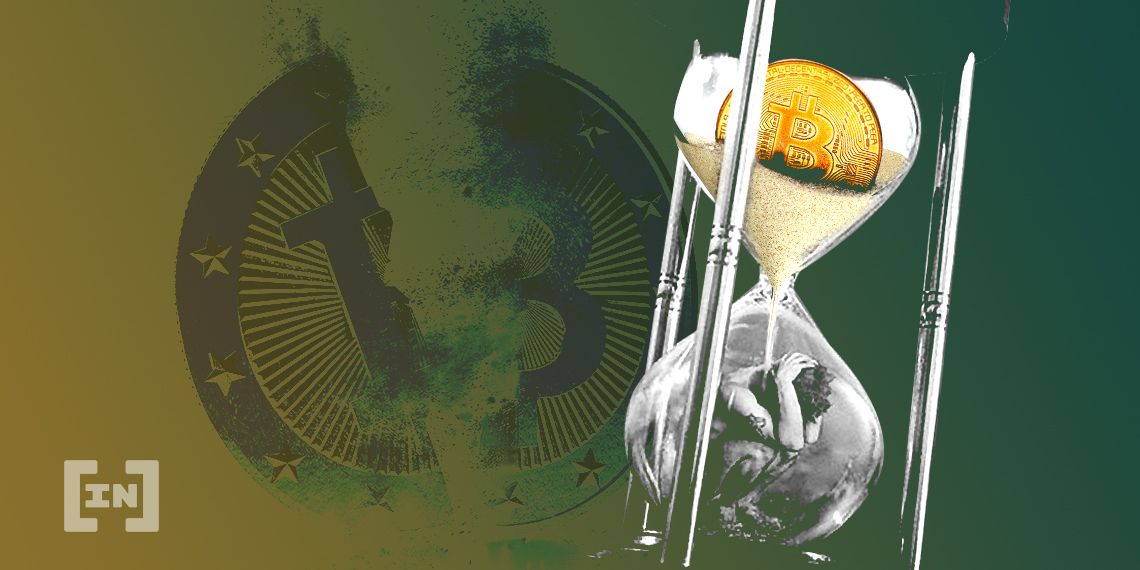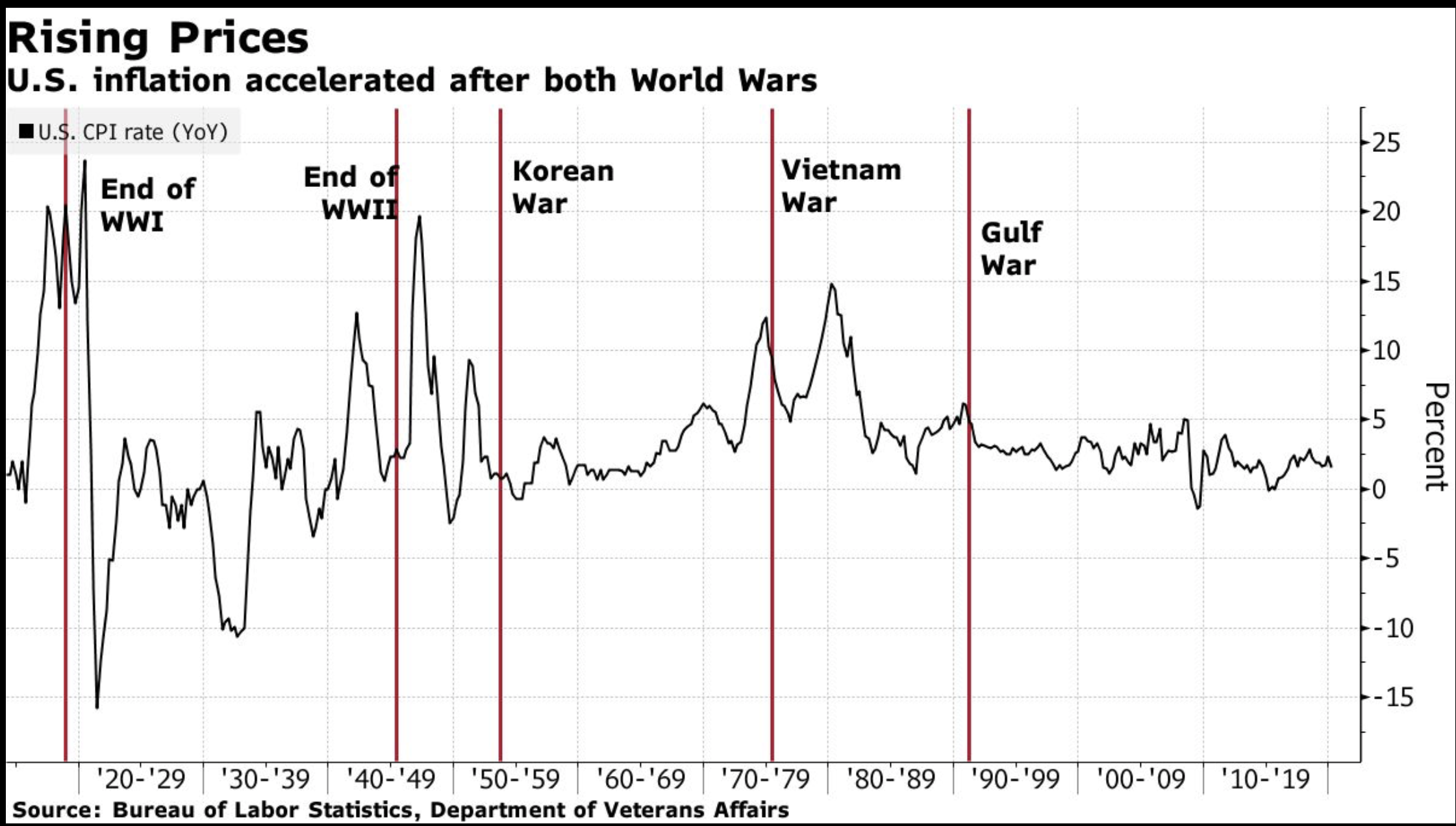
The COVID-19 response from national governments all around the world has been somewhat uniform. With few exceptions, most have chosen to lock down economies and massively expand existing monetary supply (M2) through stimuli.
This policy response has led to a huge surge in available cash. Government spending of this magnitude would, under most circumstances, create a surge in inflation. However, because of the painful unemployment situation, this hasn’t yet occurred. [Bloomberg]
War Time?
The current policies mimic governmental response in times of war. Waging war requires dramatic spending by national governments and opens doors to skyrocketing inflation.
Inflation surges are often pinned on the effects of governmental spending.

However, economists and political leaders alike are using war-time language to describe the COVID-19 crisis. Such rhetoric works for boosting public sentiment but also opens doors to substantial M2 supply increases.
Economists fear that the post-war inflation will come into play after the economy is restarted again.
A policy analysis published on Vox and co-authored by Manoj Pradhan, founder of Talking Heads Macroeconomics, and Charles Goodhart, Emeritus Professor in the Financial Markets Group at the London School of Economics, states:
“But what will then happen as the lockdown gets lifted and recovery ensues, following a period of massive fiscal and monetary expansion? The answer, as in the aftermaths of wars, will be a surge in inflation.”
Printing cash
The effects of the current crisis are widely felt, as job loss continues to surge, and many companies are seeing rapidly dwindling revenue streams. Even with consumers freed from lockdown, many economists feel that demand will remain low.
Berenberg Senior Economist Kallum Pickering is quoted in Bloomberg as saying:
“In the latter stages of the recovery, amid continued de-globalization in goods [traded] and less elastic global supply, fiscal policies may begin to stoke inflation.”
Bitcoin halving
Bitcoin is just days away from the next halving. As interest in the event has increased, the coin has seen a surge in price over the past two weeks.

Additionally, public sentiment for Bitcoin appears bullish. Mainstream media outlets like CNBC are predicting pre-halving bull runs, and the growing concern over governmental policies has led to increased attention as well. With a fixed supply, Bitcoin represents a different economic model.
The post Fiscal Policies Trigger Inflation Fears as Bitcoin Approaches Halving appeared first on BeInCrypto.
from BeInCrypto https://beincrypto.com/fiscal-policies-lead-to-fears-of-inflation-as-bitcoin-approaches-halving/



0 Comments